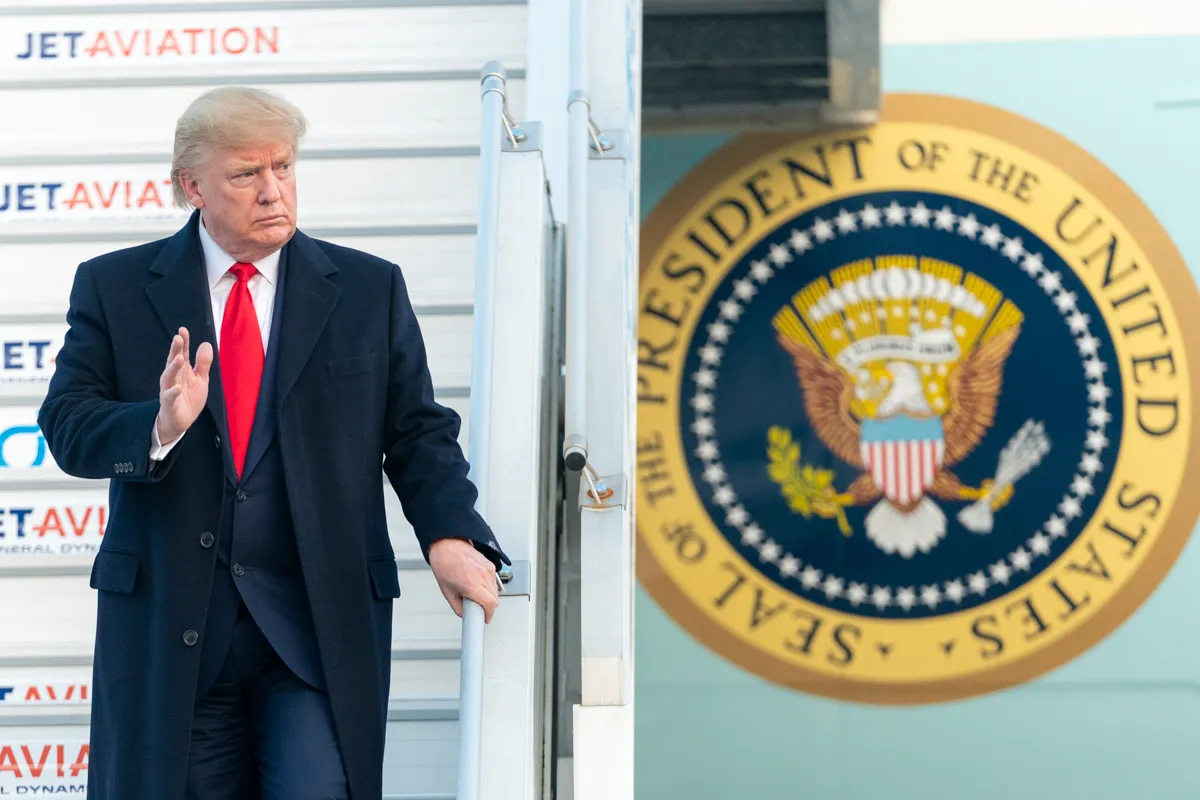Interview: Ctrip CEO on Growth Strategies and Employee Empowerment

Skift Take
Chinese outbound travel gets so much attention these days, but domestic leisure travel remains the core driver of Ctrip's financial results with the company having a dominant share of online bookings in the top cities within mainland China.
I recently visited Shanghai and had the chance to interview Ctrip CEO Jane Jie Sun, and we discussed a broad range of issues.
After its investments in former rivals Qunar and eLong, Ctrip has managed to tone down the severe discounting that was under way, and is now pushing into lower-tier cities.
On another front, Ctrip does have a very large share of online travel in China, but the move from offline to online bookings is still very early in its transition path. Additionally, rising incomes have increased the size of the middle class and affluent population, further propelling domestic travel.
The outbound market, which is already a $261 billion industry, is the next push for Ctrip. Outbound travel growth from mainland China to Hong Kong, Macau, and Taiwan is flat this year after several years of declines, while outbound to the rest of the world is still growing in the mid-teen percentage points.
With fewer than 10 percent of China’s population having a passport, outbound travel is still fairly early in its trajectory, but has leveled off from its rapid growth period.
Ctrip has partnered with Booking.com for foreign hotel inventory, acquired Skyscanner, made numerous investments in smaller companies in key markets (MakeMyTrip in India, for example), and is pushing a company-wide English-speaking initiative. Ctrip’s initial outbound strategy focuses on the Asian market given the proximity, but the United States and European markets should follow.
In walking around Ctrip, I noticed there was a nursery, and Sun discussed the multiple ways the company is trying to reverse the impact of the now-abandoned one-child policy.
We recently launched A Deep Dive Into Ctrip and the China Online Travel Market 2017.
Below is part of an interview with Ctrip CEO Jane Jie Sun. For more insights from Sun and the rest of the executive management team along with much more on Ctrip and the travel ecosystem in China, get the full report here.
Skift: When you look out over the next two, three, four years, and prioritize growth, how do you view things like lodging versus air travel or outbound versus the increase in domestic leisure travel?
Jane Jie Sun: Maybe I can talk with you on the markets and then product, because that’s the two different angles we can look at. In terms of market, there are two major markets we are very focused on. The first one is the domestic market where Ctrip is very strong in first-tier cities, and some of the second-tier cities. For the third or fourth-tier cities, we haven’t penetrated them to the same extent. We’re spending more marketing dollars into these areas. That’s one priority in a domestic market.
Skift: Is that through the Ctrip brand or through the Qunar brand, or both?
Sun: Both. Ctrip will probably will focus on the top thirty cities, and Qunar will focus more on the lower market.
That’s the domestic market. Then another opportunity for international expansion. We made an investment in Skyscanner, which has global brand that compares the prices for air tickets, but does not have direct booking facilities like Ctrip has. Our two teams will work together, make their direct booking facilities through us. That’s our priority. Also, in other promising markets, such as India, we made investment in MakeMyTrip, which is the leading player there. In the United States, where we see huge growth potential, we made investment in three local tour operators.
Skift: For MakeMyTrip, do you see that as a meaningful contributor or more of an incremental piece of the pie for Ctrip?
Sun: Right now, we are the second largest shareholder. The reason we feel it makes sense is the two markets are very sizeable. China has 1.3 billion people and India has 1.2 billion. If you look at the GDP per capita, India is about 15 years behind China. If they learn from our past experience, probably they can avoid a lot of pitfalls.
Skift: What are the trends you are seeing in China Outbound?
Sun: For Chinese travelers, because of the short distance to places like Japan, Korea, Taiwan, Hong Kong, Macau, and Thailand, if you take off one day or two days you can make a very nice long weekend. The travel frequency to Asian countries is much more frequent than long-haul travel. But China does have two or three long-haul opportunities.
One is the Chinese New Year, where the whole country shuts down for one week. Another one is National Holiday which is October the 1st, the country shuts down for seven days. Another one, which lots of family will enjoy is the summer holidays. These are the long-hauls.
Our focus first of all is the Asian market, because we feel our air product in Asia is very strong. And we can leverage our network to serve the rest of the Asia for air products. We also have lots of other products such as rental cars, attraction tickets, train, golf-tour, etc.
Skift: In China, Ctrip has so much functionality beyond hotels and air travel. Do you see that progressing to other markets where you’ll have a U.S. version, you’ll have a European version? Or do you see this being the Chinese version and the US version is a little bit stripped down and it’s more about that air and hotel?
Sun: It’s very interesting. In the China market, people like to have everything in one place. In a PC world, it’s very easy to open different apps and compare price. But in an app world, it’s not very easy to open multiple apps to compare price. Consumers, at least in the China market, like to have it all on one site where they can have everything. It will be an interesting experiment to see how the rest of Asia progresses.
Skift: In China, the economy is growing nicely and policy changes have made travel easier from an inbound perspective. A U.S. visa used to be a one-time entry, but now I spend 140 dollars and can make unlimited trips for 10 years. Are you seeing a pick-up in inbound?
Sun: Yeah. For the U.S., the 10-year visa is going to greatly boost the multicultural exchange. It is also the same thing with outbound travel. We, very much want to open up more for more countries. The US-China now has 10-year visa. If this happens with Europe, the rest of Asia, it will promote a lot of the international travel.
Skift: A subtle thing I noticed walking around Ctrip is that you have a nursery there. I would imagine this is not common in China?
Sun: No, not at all.
Skift: Can you discuss how the nursery came about, how it helps employees, and if the impact on retention?
Sun: China used to have this one child policy. Our founder James [Jianzhang Liang] wrote the book on this to promote reversing the policy because in order to have a stabilized population, every family needs to have 2.1 children. In China now, it’s below that at 1.3, 1.2. It’s really a severe issue. What we believe is the government needs to give tax breaks to incentivize family to have more children. And enterprise also needs to take on the responsibility to support our young families. At Ctrip, any children from 18 months to kindergarten can be brought here. During the summer and the winter, we have camps. We open up our conference room for the kids to be there.
For pregnant women, we give them a taxi for free. When they have babies, we give them a monetary gift. For some of the employees, if they are in a remote area, they can join the work-at-home program if the coverage is slow.
All of these measures are intended to send a message to society as a corporation that we need to be corporate good citizens. We need to encourage our employees.
Skift: I know you are pushing all employees to learn English. What is the driving force there?
Sun: Sure. Our employees are very young and very curious. They grew up in China so I have lots of confidence that they can serve the China market very well. But in order to go abroad, the first barrier is the language, otherwise you won’t be able to communicate with the other side. I feel that to learn English is very important. English is a global language. No matter where you go, you want to communicate with the rest of the world. Learning English becomes the first and very important step for them and fortunately, our employees are very eager to take on the challenge.
Our official language is not Chinese now, but rather dual Chinese and English.
Skift: In the past, the U.S. was almost always the leader in tech and you’d have the Chinese company a little behind. This has changed where companies like WeChat are an example of what Facebook Messenger could become versus the other way around. What have been the main drivers of this change?
Sun: In the first stage, China was so much behind the USA. I talked with you last time that when I first came to the USA, my professor brought me to a grocery store and I saw an aisle of food for pets. And I burst out crying because in China in 1989, lots of poor people were starving. That’s the level that we’re looking at. At that stage, if we talk about technology, innovation, there was no ground. People were still trying to meet their basic needs.
Throughout the past 30 years, I think that the government has done a good job of lifting the poverty level so the majority of Chinese people are out of poverty. Feeding people is not an issue anymore, right? Then, people start to have better education, workers will be sent to global universities. They learn from the world.
The second stage probably was following the footsteps of the U.S., UK, and the rest of the world. What they did, we copied.
Now, China is already surpassing Japan, Europe, Germany, and the UK. China is the second largest economy in the world. The vision becomes more global. Chinese people are very strong in math, chemistry, physics, and computer science. The general education is very strong in math and logic thinking. That gave China an advantage.
Another thing is the Confucius teaching in the past 2,000 years, being diligent is part of the culture. Our team works very hard. Creativity is created by people. If you’re willing to put 16 hours versus a person who puts in 8 hours, your productivity will be double the other one. One year in China probably equals two years in the rest of the world.
Skift: What is your vision for Ctrip over the next five years?
Sun: Ctrip wants to be the most innovative online travel agency in the world. We need to encourage more and more young employees to take ownership in their business. I want their authority. I always tell our employees right now, and we have about 30,000 employees, if each employee treats them as the CEO of their business unit, our company will innovate. I want them to use CEO mentality to handle their day to day work.
Subscribe now to Skift Research Reports
This is the latest in a series of research reports, analyst calls, and data sheets aimed at analyzing the fault lines of disruption in travel. These reports are intended for the busy travel industry decision maker. Tap into the opinions and insights of our seasoned network of staffers and contributors. Over 200 hours of desk research, data collection, and/or analysis goes into each report.
After you subscribe, you will gain access to our entire vault of reports, analyst calls, and data sheets conducted on topics ranging from technology to marketing strategy to deep-dives on key travel brands. Reports are available online in a responsive design format, or you can also buy each report a la carte at a higher price.




